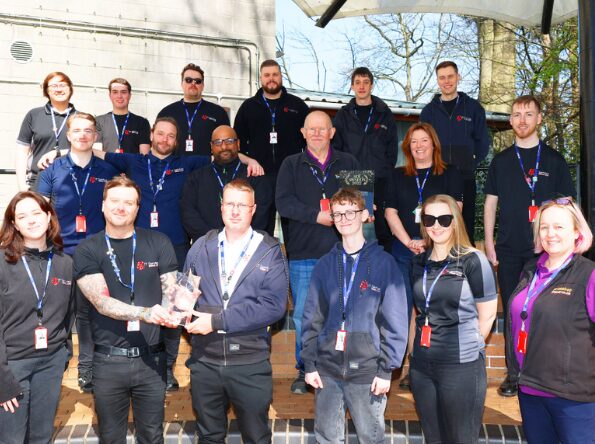GCU utilised SDI’s Support Services to raise their customer satisfaction levels, create a strategic service improvement roadmap aligned with industry best practice and improve use of their ITSM tool.
Glasgow Caledonian University (GCU) is a vibrant multi-cultural modern university in the centre of Glasgow and is placed among the top 150 Universities in the world. As well as the city-centre campus in Glasgow, GCU also has a cutting edge campus in Spitalfields, London, and is the first foreign higher education institution to award degrees in New York, with the establishment of GCNYC. The university’s aim is to contribute to society in a manner that embraces yet goes beyond the traditional role of a university.
GCU’s Information Services (IS) department is based in the Glasgow campus. It consists of 65 employees, with a mixture of technical support, project, and training staff. Within the IS department is the service desk which supports approximately 1,600 administrative staff, 13,800 undergraduate students, and 2,780 postgraduates from more than 100 different countries. The IT service desk consists of 5 analysts and a team leader. They handle approximately 3,500 contacts per month via phone, email, and the self-service portal.
The Challenge
Create a service improvement plan to better utilise new ITSM software, based on industry best practices.
GCU had implemented a new IT service management (ITSM) tool. Determined to make the best use of its features and functionality they needed to review service desk operations and identify performance levels in order to obtain a starting point for service improvement. The short timescale GCU had when implementing their new tool, and the introduction of ITIL® processes into the department for the first time, led to some large cultural changes in operations, resulting in poor receival of the new tool by many in the department. The best way forward was to obtain impartial and external advice to provide their service desk with fair observations, feedback, and guidance to unite and develop the department’s operation. This information would direct the development and progression of their service desk and pave the way for continual service improvement. GCU’s main objective was to identify what would be the biggest priorities and would provide the best service from a customer’s perspective. The support operation at this stage hadn’t fully developed formal ITSM processes, hadn’t documented an SLA or KPI targets, and was not conducting customer or employee satisfaction surveys.
The Solution
Use SDI Health Check Service to identify service desk maturity level and develop a plan for continual service improvement.
The SDI Health Check identifies successful components of the service desk and provides a structured plan for areas of service improvement, taking many factors into consideration including industry best practices and any future implications. One of SDI’s service desk experts will draw on the Service Desk Institute’s global standards along with their own knowledge and experience to assess the maturity level of the service desk and provide advice and guidance for improvement. GCU had a very strong desire to improve their service desk and knew that a structured improvement plan would help solve their frustration of knowing there was a lot to do but not knowing where to start. Interviews with key stakeholders, staff, and customers provided a clear, honest evaluation of the current service of the department. Observations were recorded on key components of the service such as processes, strategy, people management, and the customer experience. These interviews and observations then shaped the recommendations and action points used to create a full-service report, including a tailored route map for service improvement. This was delivered to the GCU team via an onsite workshop.
The Result
Improved quality of service, better use of the ITSM tool, and 95% customer satisfaction.
The improvement plan included employee ownership for each action, timescales for completion, and prioritisation based on resources and customer impact. Most importantly there was management commitment from GCU from the outset, for staff being given the time to implement the changes. One of the key action points was to create a formal complaint, compliments, and feedback procedure, to be captured in the ITSM tool. Doing this would measure current customer satisfaction but also support the service desk with anticipating and implementing future changes to sustain continual service improvement.
“Customer Satisfaction on resolved incidents has been implemented since July 2017 and this has been a huge success! The comments received have had a huge impact on the department; both positive comments and constructive feedback on where we can improve. Since its introduction, we are achieving above 95% customer satisfaction on a weekly basis.”
Hazel Johnstone, Service Desk Team Lead.
As a result of another recommendation, the IS department is now positively engaging a lot more with their ITSM tool. “Staff are more open to exploring the benefits of the system and its capabilities. Enhancements have been implemented to assist support teams in managing request items such as scheduled equipment deliveries.” These first changes in operation on the service desk at GCU have shown some brilliant and tangible results already. At SDI we are really proud of what they have achieved so far and are looking forward to the IS department’s next implementations which will ensure their brilliant service keeps improving.















